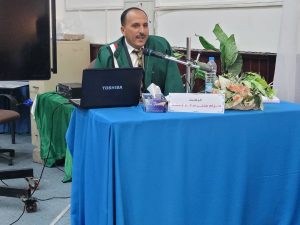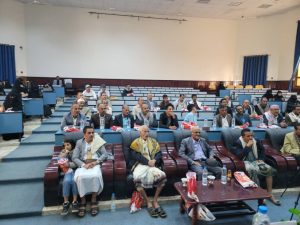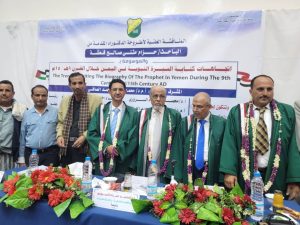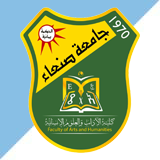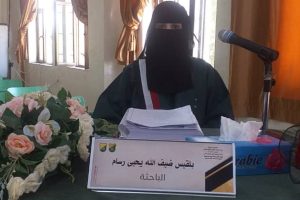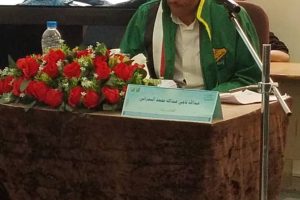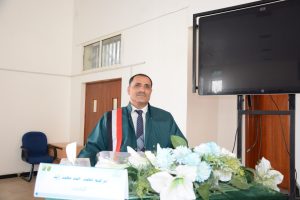Public PhD Viva-Voce Examination of Mr. Hazam Muthanna Saleh Qa’sha, from the Department History and International Relations, Faculty of Arts & Humanities – Sana’a University
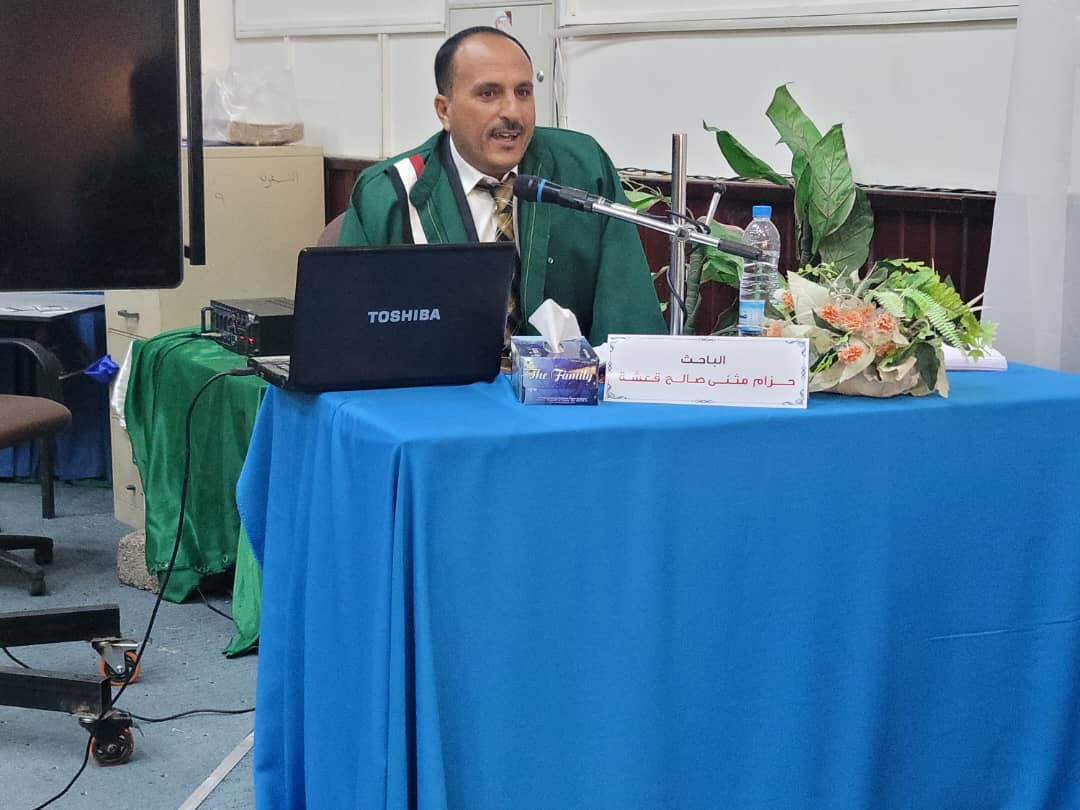
Public PhD Viva-Voce Examination of Mr. Hazam Muthanna Saleh Qa’sha, from the Department History and International Relations, Faculty of Arts & Humanities – Sana’a University
Mr. Hazam Muthanna Saleh Qa’sha has successfully obtained his PhD degree from the Department of History and International Relations, majoring in Islamic History, from the Faculty of Arts & Humanities – Sana’a University. His dissertation entitled “Trends in Writing the Prophet’s Biography in Yemen During the Ninth Century AH/Fifteenth Century AD,” was defended on Wednesday, the 6th of Rabi’ al-Thani 1446 Hijri, corresponding to October 9, 2024.
The Viva-Voce Committee, which was formed based on a resolution issued by the Post-Graduate Studies and Scientific Research Council, consisted of the following:
Professor Mohammad Abdu Al-Saruri, Internal Examiner, Sana’a University, Chair.
Professor Mohammad Hussein Mohammad Al-Safi, Main Supervisor, Sana’a University, Memeber.
Professor Ali Abdulkarim Mohammad Barakat, External Examiner, Ibb University, Member.
The primary objective of the dissertation was to investigate and analyze the various trends in the writing and composition of the Prophet’s Biography, focusing on a specific historical period and geographic context. The research yielded several significant findings, notably highlighting the diverse approaches to composing the Prophet’s Biography within the Yemeni scholarly community during the 9th Century Hijri / 15th Century, encompassing jurisprudential, theological, and other perspectives.
In addition to presenting these findings, the researcher offered several recommendations aimed at enhancing scholarly inquiry, including advocating for necessary support for researchers, facilitating access to research methodologies, and promoting collaboration among both private and public academic institutions.
The Viva-Voce was attended by several academics, researchers, students, and several colleagues and family members of the researcher
